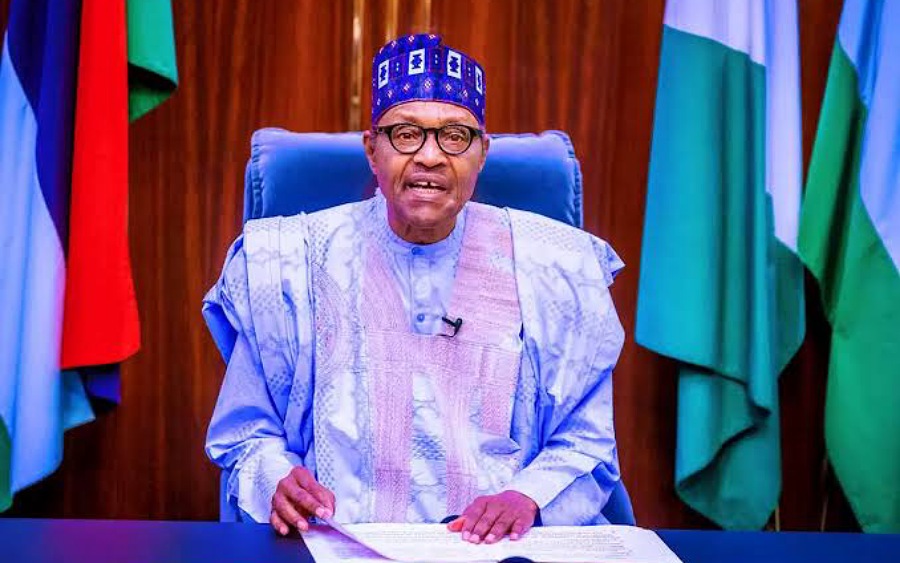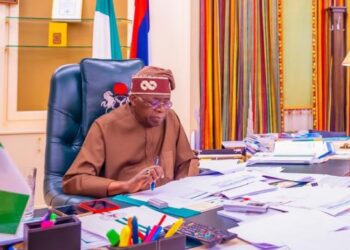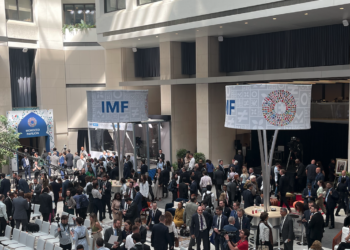A recent headline from various Nigerian media outlets read “Nigeria broke as debt payment exceeds revenue”.
The topic soon dominated social media, schools, private and public sector circles etc. as Nigerians pondered how we found ourselves in this situation.
But how did this confusing headline originate?
The source is supposedly from the Medium-Term Expenditure Framework presented by Nigeria’s Ministry of Finance. The report also showed that Nigeria was spending about 118% of its revenue on debt service, meaning it is also borrowing to service debt.
Specifically, the report revealed that between January and April 2022, Nigeria’s debt service cost of N1.94 trillion surpassed its revenue of N1.63 trillion.
- In only the first four months of the year debt service gulped a sum almost 20% more than revenue.
The reason provided by the minister, Dr. Zainab Ahmed, was that the inability to increase crude oil production, as well as subsidy deductions, posed significant challenges to Nigeria’s revenue generation.
“Crude oil production challenges and PMS subsidy deductions by NNPC constitute significant threat to the achievement of our revenue growth targets, as seen in the 2022 Performance up to April,” she said.
“Revenue generation remains the major fiscal constraint of the Federation. The systemic resource mobilization problem has been compounded by recent economic recessions. Bold, decisive and urgent action is urgently required to address revenue underperformance and expenditure efficiency at national & sub-national levels,”
So, when is a country deemed to be bankrupt?
Definitionally, a country is said to be broke or bankrupt when everyone in the country including the private sector is unable to meet debt obligations to their creditors.
- Being “ unable to meet debt obligations” requires that the country has both defaulted on it’s outstanding debt AND has been assessed to have insufficient future earnings to settle obligations as at when due.
- At this stage of bankruptcy “aka broke”, the country’s creditors then begin to take aggressive actions to recover monies due.
In other words, being bankrupt means a default on your loans has occurred AND you have been assessed by your creditors to be incapable of settling debt.
So is Nigeria broke?
Thus far, it is simply premature to say Nigeria is broke. This is especially as the government is yet to default on its loans.
- In fact, Nigeria has been servicing its loans to its creditors both local and foreign and has never defaulted. This remains the same today.
Additionally, whilst FG expense is outpacing FG revenue, the fact remains that Crude Oil receipts are not going to evaporate in the immediate term. Thus ability to earn future revenue remains intact.
Furthermore, even when a sovereign default occurs, such as in Argentina and Greece
The country’s existing debt profile can always be renegotiated to defer payments and backend cash flows whilst creditors can push for aggressive fiscal actions such as raising taxes amongst others.
This definition of being bankrupt is important, Given the increasing cost of money (i.e. rising global interest rates and ever demanding creditors), it is essential that Nigeria’s current state of affairs are not mischaracterized to avoid the larger risk of creditor apathy creating a self-fulfilling prophecy.
So, what is wrong with Nigeria’s financial performance?
Thus far, we have established that Nigeria is NOT bankrupt.
However, it is clear that the quagmire facing Nigeria’s government is how to optimize its revenue-generating capabilities through innovative and bold actions to match expenditure (i.e., rather than the existing passive approach to revenue generation).
Therefore, the appropriate term is that Nigeria is in the midst of a Fiscal crisis, whereby a country is experiencing challenges with bridging the deficit between its Tax revenues and Expenditure.
- Readers can see more here
- The key difference between an entity experiencing a Fiscal crisis (compared to a bankrupt entity), is that an entity in Fiscal crisis has the full and independent power to make the necessary adjustments required to correct the adversity it faces.
Looking through the four-month results published by the Ministry, a few observations are apparent,
- Firstly, the full-year budget was for a deficit anyway (I.e. N7.3trillion), thus having a deficit in April should not be such a surprise
- Furthermore, an in-depth look at the breakdown of the debt service sum of N1.9trillion which is causing this storm shows that Nigeria’s federal government is clearly on track with Foreign debt service
Nairametrics believes Nigeria is in a cash flow-related fiscal crisis which is defined inability of a country to bridge a deficit between its expenditures and its tax revenues.
- In other words, the revenue generated by the country is not enough to meet its expenditures which then leads to a budget deficit. It is the budget deficit that is financed by external and local loans.
- Nigeria has been in a budget deficit for the last 10 years a situation that has deteriorated since the start of the Goodluck Jonathan administration and gotten worse during the current Buhari administration.
- Nigeria’s fiscal crisis is what has led to the ballooning of Nigeria’s public debt from about N12 trillion in 2016 to about N41.6 trillion as of the first quarter of 2022.
- At N1.9 trillion for debt service, Nigeria is likely to spend over N5 trillion on services debt alone in 2022.
This year’s aggregate expenditure was estimated at N17.32trn, with a prorated spending target of N5.77trn at the end of April. However, the actual spending as of the end of April was N4.72 trillion out of which N1.94 trillion was for debt service, and N1.26trn was for personnel costs, including pensions. Meanwhile, FGN’s retained revenue was only N1.63trn, 49% of the prorated target of N3.32trn.
The Minister also provided some insights. According to her, subsidies had overburdened government finances and have pushed the fiscal deficit to as much as N3.09trn between January and April this year. Apart from subsidies and high government expenditures, revenue as also been a major issue.
Why is Nigeria’s government revenue poor?
- Nigeria is performing poorly in terms of government revenues because it has struggled to generate significant revenue from oil, one of its mainstays.
- This year, the government projected revenues of about N9.96 trillion largely from oil sales based on a benchmark of 1.8 million barrels per day.
- Unfortunately, oil theft and pipeline vandalization has decimated the country’s oil revenue profile affecting revenues.
- Nigeria is also performing poorly in the generation of significant tax revenues to augment its oil export revenues and meet its expenditure obligations.
How Much does Nigeria Generate from taxes as a percentage of GDP?
- According to data from the Central Bank of Nigeria, Nigeria generated about N9 trillion (gross) from a combination of petroleum taxes, company income tax, customs imports, excise duties, Value Added Tax, Capital Gains Tax, and Stamp Duties in 2021.
- In 2021, Nigeria’s nominal GDP was about N173 trillion.
- Based on tax revenue of N8.9 trillion and a GDP of N173 trillion Nigeria’s tax to GDP ratio in 2021 was just 5.1%.
- See slide 41 for details of Nigeria’s Q3 budget implementation report.
Finally, Nairamtrics can confirm that Nigeria is not broke or bankrupt, or in default. However, we do face a revenue or fiscal crisis where our revenue is way smaller than the government’s expenditure.
- Being broke will mean a country cannot pay for all its budgeted government expenditures either through debt or revenue which is a very rare if not impossible situation.























Congress can not be living in opulence while presiding over a comatose economy. Their pay should reflect the state of affairs in the country.